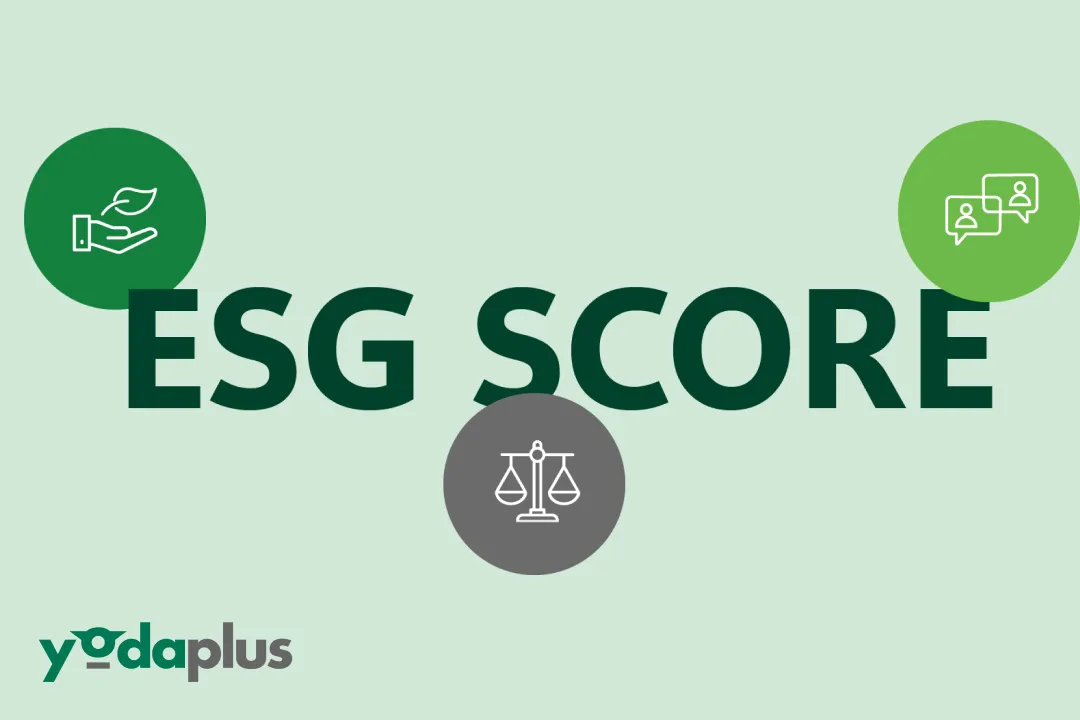Traditionally, investors and other stakeholders in business considered profitability to be the top factor upon which they would make key decisions. This trend has shifted over the last several years.
Today, the environmental, social, and governance (ESG) scores of businesses are emerging as the top metrics upon which investment decisions are made.
For instance, ESG-focused institutional investing is seeing a surge. By 2026, ESG-focused institutional investment is projected to reach a market value of $33.9 trillion, estimated to make up 21.5% of total assets under management.
In this blog, we discuss the relevance of a company’s ESG score, how accurately ESG data is collated, and its impact on a company’s bottom line.
Relevance of the ESG Score
Today, the sustainability of businesses is a growing concern around the world. Sustainability doesn’t merely refer to a company’s footprint on climate change. It also encompasses a business’ ability to build a sustainable workforce and a transparent, accountable corporate framework.
But how do companies measure performance on these various factors? This is where an accurate ESG score can help companies, their investors, and other stakeholders gauge where the company stands in its sustainability journey.
Also referred to as sustainability investing, a company’s ESG score reflects upon a company’s ability to provide long-term value without negatively impacting the environment or society.
ESG Scores Deconstructed
As the name suggests, ESG scores are based on a company’s performance on three factors:
1. Environmental : This includes a company’s carbon emissions, energy consumption, waste production, and supply chain management. It takes into account how a company is addressing climate change by reducing the environmental impact of its operations. For instance, is it investing in renewable energy sources?
2. Social : This includes diversity and inclusion, performance on talent retention, employee safety, and employee satisfaction rates.
3. Governance : This includes the diversity of the company’s board, executive pay, accountability standards, transparency policies, shareholder rights, and corporate culture.
Who Leverages ESG Ratings?
Here’s a snapshot of how various stakeholders use ESG ratings:
1. Investors : They use ESG scores to determine whether potential investments can deliver a good RoI. Investors consider a very low ESG score a red flag; it signals the potential for taking on much risk.
2. Companies : They use their ESG scores to determine the scope for improvement. For instance, an optimized supply chain can lead to a reduction in wastage and energy consumption. In turn, it can boost profitability.
3. Governments : Several governments have introduced ESG regulations in their country to reduce carbon footprints and enhance workplace culture. For example, in some countries, companies must attain an ESG score of at least 50 to be in operation.
Impact of Poor ESG Scores
Companies with poor ESG scores may be viewed as violators of sustainability on various factors.
For example, if a company is polluting local waterways, which has led to a large number of people in the community suffering from cancer, this translates to a poor ESG score. Factors such as high attrition and a poor diversity metric also affect ESG scores.
A good ESG score helps companies build a competitive edge. Companies with good ESG scores are also likely to attract investors, grow customer loyalty, and boost the sustainability of business operations and, in turn, financial performance.
For instance, they may feature high on a venture capitalist’s priority during a fundraiser. Asset management companies are also prioritizing institutional investment in companies that have a better ESG score.
Who Calculates ESG Scores?
Typically, ESG scores are calculated by third-party specialists in the field. MSCI, Sustainalytics, and ISS are examples of such companies.
Most ESG evaluators look at factors such as carbon emissions, energy consumption, and waste production, which directly impact company operations.
They also review account supplier assessments, employee diversity/discrimination history, supplier diversity, pay ratios, and executive compensation. However, it’s easier for ESG specialists to configure accurate ESG scores when they have access to a company’s complete ESG data.
It is important to note that different ESG scoring methodologies may differ in terms of their data sources, data weighting, and score calculation methods, leading to differences in ESG scores across agencies.
In Conclusion
Today, one of the key challenges companies face is the inability to drill down high-quality ESG data. Yodaplus offers bespoke ESG data management solutions backed by the implementation of packaged solutions with an industry-standard data model, out-of-the-box rules, and workflows.
We help companies develop consistent ESG data architecture solutions that give them access to comprehensive ESG data. Connect with us to start a conversation and find a reliable partner for your ESG data management needs.


